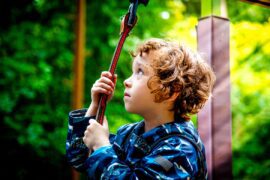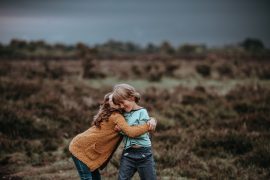Children can also experience many benefits from a meditation and mindfulness practice:
- Develops the area of the brain responsible for emotion regulation and impulse control.
- Reduces stress, anxiety, and fears.
- Allows for a less reactive state to emerge.
- Promotes feelings of safety and security.
- Improves self-esteem and self-confidence because children feel heard, seen, and validated.
- Develops problem-solving skills by developing self-reflection and self-awareness, instead of being reactive and living on autopilot.
- Develops conscious individuals.
- Improves emotion management.
- Improves resilience.
- Cultivates better self-awareness of their thoughts, feelings, and sensations. Children become better skilled at communicating their needs to others.
- Promotes healthy psycho-social development in children. Improved social skills and interactions emerge because children become skilled communicators. Conversely, they become good listeners themselves.
- Creates grateful children able to live in the present moment.
- Fosters compassion and empathy for others; they become less self-centered.
- Diminishes behavioural problems, while improving emotional health and behavioural functioning (6) (7).
- Improves attention, focus, concentration, memory, and learning (4).
- Improves emotional intelligence.
- Reduces reactivity to others’ anger. They do not take it personally.
- Promotes self-reliance by teaching them to accept and tolerate their own emotions, feelings, sensations, and thoughts. In turn, they find comfort within by learning to soothe and calm themselves without depending on external factors.
- Allows children to find happiness from the inside, independent of external circumstances.
- Improves parent-child relationship during adolescence.
- Cultivates more emotionally and socially competent youth(8)(9).
If you are new to mindfulness, start small. Choose moments throughout your day where you can pay attention to the unfolding of each moment. Become the non-judgmental observer of the experiences taken in by your five senses. Moreover, take in the beauty of your life. Incorporating mindfulness and meditation into our family life can only prove beneficial to all those involved.
REFERENCES
- Many of the benefits covered in this post are also summarized here :Duncan,L.G.,Coatsworth, J.D. & Greenberg, M.T.(2009) A Model of Mindful Parenting: Implications for Parent-Child Relationships and Prevention Research Clin Child Fam Psychol Rev. 2009 Sep; 12(3): 255-270.doi: 1007/s10567-009-0046-3.
- Kabat-Zinn, J. (2003). Mindfulness-based interventions in context: Past, present, and future. Clinical Psychology: Science and Practice,10, 144-156. doi:10.1093/clipsy/bpg016.
- Dumas, J. E. (2005). Mindfulness-based parent training: Strategies to lessen the grip of automaticity in families with disruptive children. Journal of Clinical Child and Adolescent Psychology,34, 779-791. doi:10.1207/s15374424jccp3404_20. [PubMed]
- Mindfulness Web Site: Greater Good: The Science of a Meaningful Life.greatergood.berkeley.edu/topic/mindfulness
- Coyne, L. W., & Murrell, A. R. (2009). The Joy of Parenting: An Acceptance and Commitment Therapy Guide to Effective Parenting in the Early Years.Oakland, CA: New Harbinger.
- Singh, N. N., Lancioni, G. E., Winton, A. S. W., Fisher, B. C., Wahler, R. G., McAleavey, K., et al. (2006). Mindful parenting decreases aggression, noncompliance, and self-injury in children with autism. Journal of Emotional and Behavioral Disorders,14(3), 169-177. doi:10.1177/10634266060140030401.
- Singh,N.N,Lancioni, G.E., Winton, A.S.W., Singh, J., Curtis, W.J.Wahler, R.G.,& McAleavey, K.M. (2007) . Mindful Parenting Decreases Aggression and Increases Social Behavior in Children With Developmental Disabilities, 31 (6) , 749-771. doi: 10.1177/0145445507300924
- Eisenberg, N., Cumberland, A., & Spinrad, T. L. (1998). Parental socialization of emotion. Psychological Inquiry,9, 241-273. doi:10.1207/s15327965pli0904_1. [PMC free article] [PubMed]
- Katz, L. F., Wilson, B., & Gottman, J. M. (1999). Meta-emotion philosophy and family adjustment: Making an emotional correction. In M. J. Cox & J. Brooks-Gunn (Eds.), Conflict and cohesion in families: Causes and consequences. The Advances in Family Therapy Research Series (pp. 131-165). Mahwah, NJ: Lawrence Erlbaum.
Dr. Gina Madrigrano is a Clinical Psychologist, Author and Speaker. She is committed to helping parents, foster an influential and positive relationship with their children. She has over 30 publications that include book chapters; peer-reviewed articles, national and international keynotes. She is currently working on a book on Children’s Self-Esteem. Dr. Gina homeschools her beautiful daughter. Find her at drmadrigrano.com where you can get a free ebook on the Multiple Benefits of Giving Kids Chores. She is also on Twitter and on Facebook ( Page and Group).










